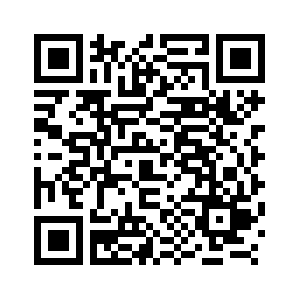WASHINGTON, May 10 (Xinhua) -- U.S. President Joe Biden on Tuesday said the administration is discussing whether to drop the additional tariffs on Chinese imports imposed during the Trump administration, while noting that no decision has been made.
"We're discussing that right now. We're looking at what would have the most positive impact," Biden said in response to a question after making remarks on inflation at the Eisenhower Executive Office Building.
Following Biden's remarks, outgoing White House Press Secretary Jen Psaki said at a press briefing that the U.S. government has already announced some tariff exclusions back in March, and it has been an "ongoing review."
"We are continuing to review where it would be advantageous to take steps that would help reduce wages -- or increase wages and help certain industries that are impacted by these tariffs in a way that we don't feel is effective," Psaki told reporters.
"There will be more and he's (Biden's) continuing to weigh them," Psaki said, adding that U.S. Trade Representative Katherine Tai is leading that effort.
Biden's remarks followed recent statements by Deputy National Security Adviser Daleep Singh and Treasury Secretary Janet Yellen, who spoke about potential easing of tariffs on Chinese goods in late April.
Such voices came as the United States is experiencing the highest inflation in four decades. The March consumer price index (CPI) surged 8.5 percent from a year earlier, the largest 12-month increase since the period ending December 1981, according to data from the U.S. Labor Department. The April CPI, set to be released on Wednesday, is expected to remain elevated.
"I know that families all across America are hurting because of inflation," Biden said in his speech Tuesday. "I'm taking inflation very seriously and it's my top domestic priority."
The U.S. president argued that the supply chain challenges resulting from the "once-in-a-century pandemic" and the Russia-Ukraine conflict are the two leading causes of the surging inflation.
Gary Hufbauer, a former U.S. Treasury official and nonresident senior fellow at the Peterson Institute for International Economics (PIIE), however, argued that the massive fiscal relief and the Federal Reserve's slow action together led to the current situation.
"I think the Fed went way, way too far in the quantitative easing and the zero interest rates," Hufbauer recently told Xinhua.
Hufbauer, a long time trade expert, said the U.S. government should eliminate or at least reduce additional tariffs on Chinese imports, arguing that such trade liberalization measures will help lower elevated inflation and stabilize inflation expectations.
In a research published on PIIE's website, Hufbauer and his colleagues Megan Hogan and Yilin Wang argued the direct effect of eliminating additional tariffs on Chinese products would be a 0.3 percentage point reduction in CPI, but there would also be indirect effect, which will add "substantially" to the 0.3 percentage point.
"It would be a pretty big signal to U.S. firms that they are going to face more competition and that might cause them to moderate their price increases as inflation rolls forward," said Hufbauer. ■



